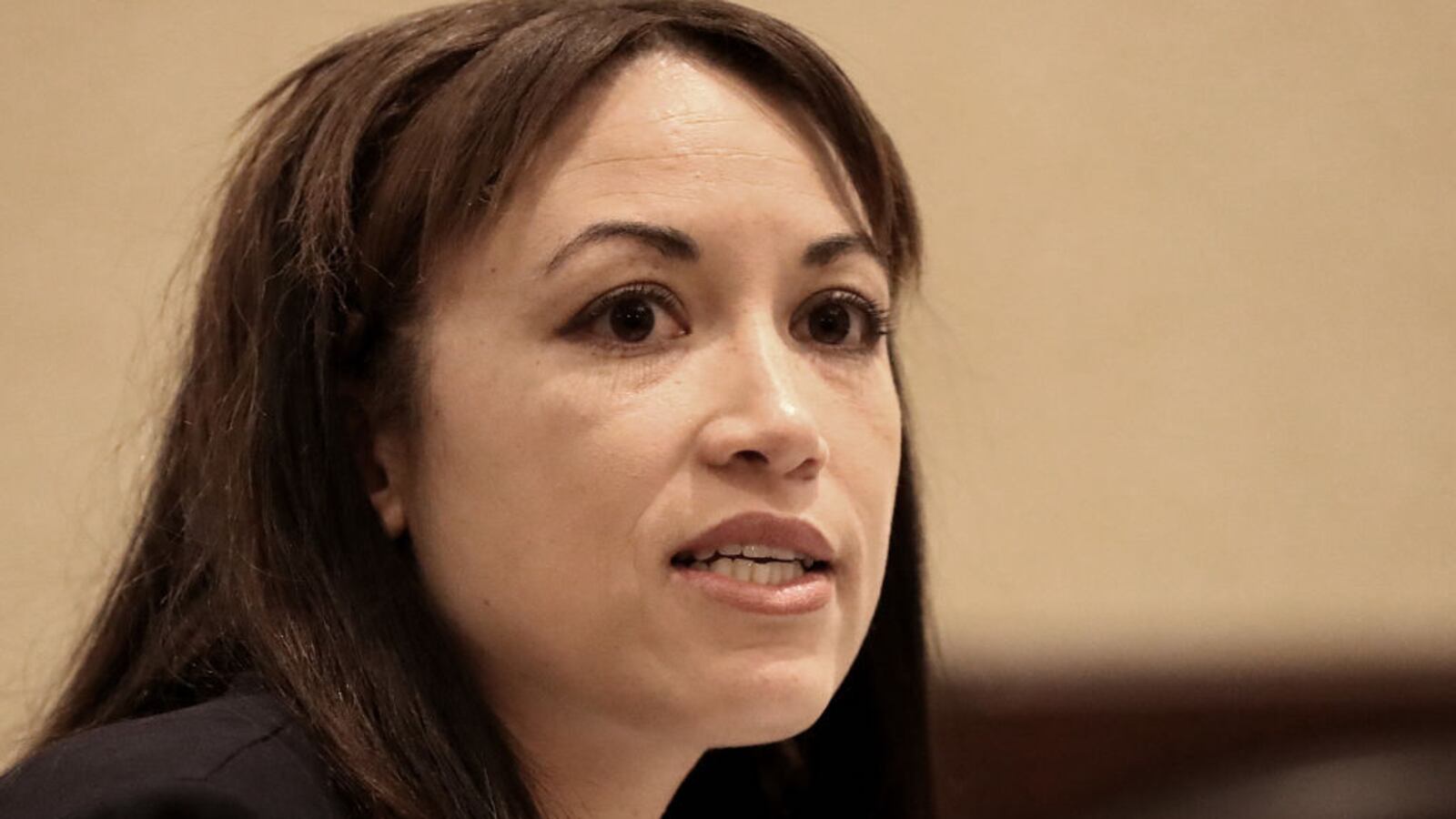Tennessee legislative leaders pumped the brakes Wednesday on Education Commissioner Penny Schwinn’s effort to revise the way the state judges its public schools.
Schwinn laid out her concerns about the state’s school accountability system during a private meeting at the state Capitol with Sen. Dolores Gresham and Rep. Mark White, both Republicans who chair the legislature’s education committees, as well as representatives from Gov. Bill Lee’s office and the Tennessee State Board of Education.
“We’ve asked her to go back to our stakeholders to start a conversation,” White told Chalkbeat after the hourlong meeting. “We know we don’t have a perfect system, and we’re always looking to improve.”
The directive slows the pace but also opens the door to possible revisions if stakeholders and policymakers agree that Schwinn’s ideas have merit.
The commissioner wants to reexamine the state’s system for judging schools, which currently heavily weights “student growth” by measuring learning over time, regardless of whether those students are proficient in meeting a certain threshold on state tests. The state’s formula also factors in proficiency, as well as new metrics such as chronic absenteeism rates, English language learner proficiency rates, and — for high schools — graduation rates and ready-graduate scores.
The formula was reached in 2017 as part of Tennessee’s school improvement plan developed with stakeholder input over the course of a year in response to the federal Every Student Succeeds Act, or ESSA.
Schwinn has mentioned a “best-of model” as one option, allowing schools to choose whether they want to be evaluated mainly on growth or on proficiency. That would mark a dramatic change of course for Tennessee, considered a pioneer in using “value-added” growth measurements to judge teachers and schools.
Should schools be judged by how much they know, or how much they grow?
While Schwinn has declined several requests for interviews about her proposals, multiple sources have told Chalkbeat that she is concerned that too many schools would receive top ratings under Tennessee’s current system, even if many of their students are not showing proficiency.
A spokeswoman said the commissioner wants to stick with one school accountability track to comply with both federal ESSA requirements and a state law to give A-F grades as a way to increase public awareness about the quality of Tennessee schools. The spokeswoman also said Schwinn does not plan to place caps on the number of letter grades given in each category, as is done in Texas, where Schwinn served as chief of academics before Lee picked her in January to be his education chief.
Schwinn had planned to introduce her ideas last week to the state Board of Education, but her presentation was scuttled at the request of Gresham and White after hearing concerns from numerous legislators, educators, and advocacy leaders.

“We are looking for transparency because there are a lot of moving parts here,” White, a legislator from Memphis, said on Wednesday.
Following their meeting with Schwinn, the two legislative leaders issued this joint statement:
“We met and understand the commissioner’s concerns around our current accountability system. We are committed to ensuring we have a rigorous and transparent system in our state. We look forward to the Department of Education engaging all relevant stakeholders as they identify issues and evaluate solutions to our current system. And we look forward to our continued engagement with the commissioner during this process to ensure parents have accurate information as they make important decisions for their children.”
Editor’s note: This story has been updated to include others who were at the meeting and with more specifics from Schwinn about her plan.

